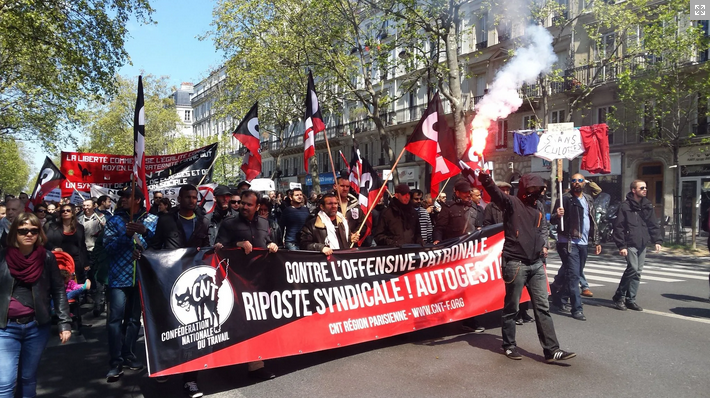Traditionally, left politics have been based on collective action to challenge, and if possible, transcend structural injustice and systemic inequality. On this count, working class left politics stands in stark contrast to middle class liberalism, which has always understood progress in terms of individualism and upward class mobility; progress is that which extends opportunities for individual advancement. No less than the Harvard Law Review describes this approach in terms of ‘trading action for access.’ Corporate capture of western institutions under neoliberalism only accelerates this process.
As a substitute for intersectional class analysis and critical thinking, so impoverished are bourgeois identity politics that even the Harvard Law Review recognises their limitations. Amidst the corporate capture of politics, captured and corproatised intellectuals try to resolve the contradictions between corporate monopoly and individual rights and responsibilities by rolling corporate hierarchy turds in egalitarianism and inclusion glitter, per the project of ‘trading action for access.’ Providing opportunities for people from diverse backgrounds to become part of the exploiting elite of course does nothing to mitigate their exploitativeness—almost by design.
The combination of corporate capture and the willingness of middle class opportunists to substitute access for action, has been disastrous for movement politics. A great example of the problems that arise where left politics are confused with middle class liberalism is the concept of ‘kiararchy,’ where intersectional class analysis is mimicked by a sort of ‘oppression olympics’ where an individual’s merit as a political actor is based on membership of often multiple oppressed demographics—on identity, in other words, rather than actions, or values lived in them.
Essentialist liberal identity politics are useful for individual advancement, not least where corporate class hierarchies can enjoy the appearance of egalitarianism by offering opportunities for diverse individuals to participate in class exploitation. An eco-technocracy of black, disabled lesbians looks better than an eco-technocracy of white, able-bodied males, but remains an eco-technocracy; the root cause of global warming in an endless-growth economy trying to operate on a finite planet remains untouched. Carbon emissions continue to rise. Politics of personality replaces politics of principle; merit is defined by willingness to conform, to prove that one is willing to enable the corporate status quo and is thus deserving, and to uphold class hierarchy generally, rather than strength of one’s ideas and our ability to live values.
Liberal identity politics are also useful for electoral politics, where the ability to sell an image is often critical for candidates mostly indistinguishable otherwise as members of ‘carrot’ and ‘stick’ factions of the one pro-big business party. We remember Bob Hawke fondly because he drank beer, and forget that he introduced neoliberal cult economics, the three-mines policy, suppressed wage growth for a decade via the Accord, and spied for the US. Joh Bijelke-Peterson was a fascist, but he was known as a personality. Julia Gilard was seen as a staunch defender of women, especially in talking back to Tony Abbott in federal parliament, but reduced the cutoff age for parenting payments to 8 and removed Australia from the migration zone for purposes of our responsibilites under international refugee conventions. Mainstream rememberings retain the personalities, not the lack of principle.
These kinds of personality-driven politics are accelerated by social media. Internet punditry is all about images and appearance; Russell Brand is just asking questions while he accumulates internet followers until he converts to Christianity and is arrested on charges of rape and sexual assault. Nominally progressive Instagram pundits pander to audiences with rage-bait over extreme examples of discrimination or prejudice that belie everyday structural violence too normal and banal to be memeable. The right for social justice and equality becomes a struggle to have the most followers; the substitution of access and opportunity for action on structural injustice reduces the cause of egalitarianism to a popularity contest.
The popularity contest thus becomes the forum amongst respectable opinion for resolving complex social issues. The fairness of a status quo where action on root causes is traded away for access to upward class mobilty and diverse middle classes is assumed; equality is no longer understood in terms of structural fairness, but opportunities to participate in a structure that is only ever becoming more unfair. Justice is understood in terms of providing and withholding opportunities for upward mobility, depending on one’s capacity to be deserving through conformity and servility. The popularity contest based on personalities rather than principles gets around challenging issues of social and historical root causes by determining right and wrong through trials by internet, performative games of ‘purge the weakest link,’ and aggressive ostracism and shunning.
Purging and aggressive, active shunning of ‘wreckers’ allows moral entrepreneurs to build their (Russell) brand without needing to navigate ethical complexity or nuance, grey area between black and whites, the humanity of the undeserving and difficult to understand, or to live values. Responsibility for the failure of mainstream politics to meaningfully address the structural injustices whose root causes it habitually spurns is laid at the feet of doubters and nonconformists; the underlying assumption that the generalised crisis of neoliberal capitalism is the fault of wreckers and saboteurs, and not the structural contradictions and violence of neoliberal capitalism, ensures that the upward mobility of middle class liberal individualists remains sacred, and is protected.
The purging of wreckers also ensures the values of the political mainstream are upheld, even as they are only asserted in speech, in opposition to some demonised Other, some wrecker or renegade. Meanwhile, the values lived by liberal puritans in actual practise typically approximate the opposite of those they allege in speech. The apostles of liberal personality politics thus render themselves cause and cure of the same problem, while problematising the same mentality in their conservative opponents. Class struggle is hard and demands the ability to cooperate with people we might not necessarily want to have a beer with. It demands principled action and the capacity to live by the same principles we apply to others. Liberal identity politics are easy, and require only that we remain silent in the face of the production of wreckers and deviants on which the regime of access to, or denial of access to, upward mobility seems to turn.
These easy personality politics and their contruction of virtue through exclusion also have the effect of diminishing social debate, our understanding of social issues and our understanding of ourselves and each other. They reduce debate to issues of personal morality. The mentality that equality depends on opportunity rather than structural fairness opens the door for silencing of dissenting or critical perspectives by attacking the person expressing them; the cause of egalitarianism and social justice now depends on the just-world fallacy to explain that criticism of class hierarchy, opportunism and careerism is actually just an attitude problem on the part of the critic. Undeserving nonconformity means that the end justifies the means; pack violence against the undeserving nonconformist and wrecker is now legitimate to protect access to upward class mobility, or egalitarianism.
Under these conditions, the pursuit of progress is reduced to humourless neopuritan stormtroopers lurking around like thieves in the night, sifting through poetry to find the prose, to cut life stories to pieces and produce the philosophy of might makes right from whatever unfavourable fragments they find useful. The cause of freedom and equality demands making political causes out of interpersonal conflict; the cause of social justice becomes a reason to sift through your garbage like the other thought police. The fight you had with your flatmate back in 2002 becomes a reason to exclude and shun you. Errors of judgement become ill intent and patterns of behaviour that makes working class leftists unfortunate enough to be in the orbit of middle class liberals worse than Jordan Peterson or Andrew Tate. Unpopularity becomes a reasonable excuse to problematise reactions to disrespect and launch pileons, pack mobbings and perpetrate wrongs in the name of ending them.
Under these conditions, the only possibility left for egalitarianism and social justice is self-censorship, lest we are proven guily of deviance through association with amoral wreckers and saboteurs—unpersons in their demonic evil as a matter of defintion. Accusation is as good as guilt. There is no open space for new ideas to come through; it is almost as though our rendering of ourselves cause and cure of the same problem is actually about silencing unwanted ideas we are unable to counter or better, and fact we prefer not to know. In the face of not wanting to be wrong, of wanting to salvage our image and our personal superiority, the option left is to attack the messenger. As we burn the Cassandras, brides of Lucifer and heretics who want only to wreck the path to egalitarianism and upward class mobility, might not only equals right—it also equals Left.
Paradoxically then maybe, assassinating Cassandras inevitably diminishes perpetrators, as well as the Cassandras personality politics are weaponised against. Behind our masks of respectable propriety and civility, we resemble the pious and moralistic tory hypocrites we nominally oppose. In our diminishment, our theory and practise falls below the standards of, for example, Alcoholics Anonymous, whose ethic of ‘principles before personalities’ reflects a level of self-restraint and impartiality largely foreign to respectable progressives. The ‘principles before personalities’ ethic is based on the AA understanding that, if a comrade needs help and asks for it, we help them, no matter what personal feelings are involved in our relationship. In nominally left milieus, by contrast, one can often only dream of such openness, much less a comparable level of solidarity towards comrades.
In looking into the AA ‘principles before personalities’ ethic, we find further that, from an organisational perspective, AA adopts this ethic on grounds that ‘everyone has a role to play, and that all roles are honoured and respected,’ that ‘People get stronger when groups emphasise and respect an individuals strengths when working towards a common aim.’ As they tell things, AA ‘practise honesty, humility, compassion, tolerance, and patience with everyone, whether we like them or not . . . putting principles before personalities teaches us to treat everyone equally.’ Members of AA themselves point out the critical importance of this ethic to their capacity to recover; without the ‘love the sinner, hate the sin’ ethic nominally associated with Christianity, but observed more often in the breach, the willing participant in recovery from alcoholism is given space to come to terms with their past, make amends and find better ways of relating to themselves and others. Without this freedom to err, the errant has no hope of recovery, the problem continues to fester, and nothing changes.
This fact begs the question as to the relevance of the ‘principles before personalities’ ethic for nominally progressive milieus that never change or evolve ideas, and don’t change anything, but are themselves changed as a result of their abandonment of principle for opportunity. In applying this ethic to the politics of freedom and social justce, the necessity of the freedom to err begs the question as to whether its denial in the name of protecting upward mobility is not actually counterproductive. Permitting the freedom to err, in a way that does not automatically conflate conflict with abuse, or being criticised with being attacked, may not be so emotionally gratifying, but it may increase our understanding of one another, ourselves, and our capacity to work cooperatively . Demonising ‘wreckers,’ nonconformists and doubters, policing morality to attack messengers when we don’t like the message, and using shame to silence after problematising reactions to disrespect and abuse, are all ways of using conflict as an opportunity for moral grandstanding and exercising control, but they also guarantee stagnation, intellectual serility, and political inertia.
This personality politics-driven approach argubly also ensures no one will want to admit to wrongdoing, if critics, nonconformists and dissenters are going to be held wholly responsible for conflict when it takes two to tango. Denial of the freedom to err to those with whom we find ourselves in conflict further ensures we cut off avenues for processing negative feelings generally, begging the question as to how much of our own attitude is a root cause of vicious cycles of conflict. Regression to ‘sympathy for me, punishment for thee’ might make conflict go away in the short term, especially if we hide behind cliquesm ingroups and tribes in so doing, but it never solves the underlying reasons for conflict in the first place, e.g. selfishness and controlling behaviour. It never helps in resolving differences without resorting to the demonising and purging of those who refuse to fall into line with selfish individualism. Outside of the just-world fallacies of liberal individualists, these are the actual root causes of a world that is anything but just, much less the root of conflict between the selfish and the cooperative. They also help to account for why the politics of personality has left us without politics of principle.





